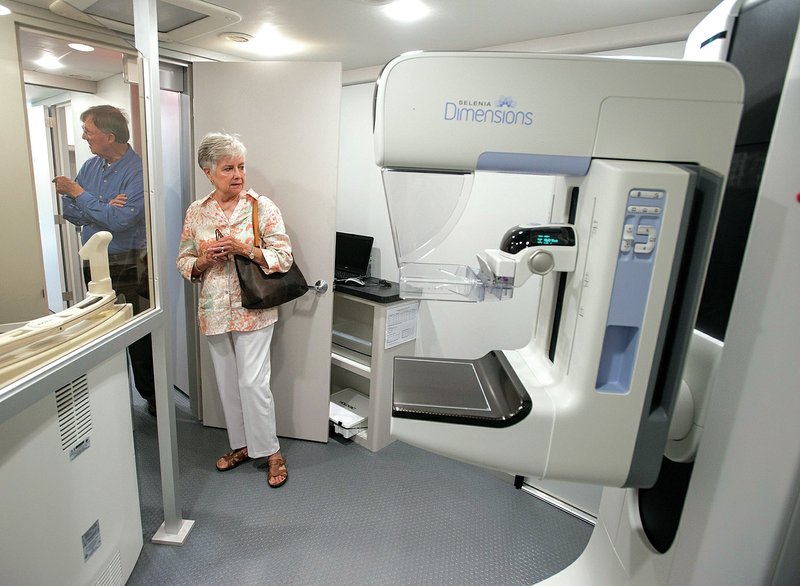ROGERS -- Mercy will roll out health care to rural communities, corporate offices and schools via a 40-foot long motor coach and mobile health clinic.
The medical system unveiled its $650,000 Mercy Mobile Health unit Tuesday morning in the parking lot of the project's largest corporate sponsor, General Mills.
At A Glance
Mobile Health Clinics
Mobile clinics provide a wide range of services tailored to a community’s needs.
The American Journal of Managed Care reports some function as comprehensive patient-centered medical clinics, while others focus on specific diseases, such as pediatric asthma. Many also provide mammography, mental health care and a variety of specialty services.
• 44 percent of mobile clinics provide primary care
• 42 percent provide prevention service
• 31 percent provide dental care
(The percentages total more than 100 because many clinics offer multiple services)
Source: American Journal of Managed Care
"This is opening up different access to health care," said Dr. Steve Goss, president of Mercy Clinic Northwest Arkansas. "It's hard to have quality care when people can't access it."
The vehicle is equipped to provide mammography and cardiovascular screenings, as well as blood draws, education and charity care, said Eric Pianalto, president of Mercy Hospital Northwest Arkansas.
The vehicle can expand up to 3 feet on each side for extra space and will be staffed by a rotation of physicians, nurses and nurse practitioners depending what service is being offered. Each time the Mobile Health unit rolls to a location it will offer specific services, such as mammograms for employees at a specific business or glucose screenings at a rural church.
A study by the American Journal of Managed Care estimates there are 1,500 to 2,000 mobile clinics nationwide, each serving an average of 3,100 visitors per year. That comes to 5 million to 6 million visits annually.
The journal reports almost half of mobile clinics are run by independent entities such as nonprofit groups and a quarter are managed by hospitals. The rest are run by community health centers and academic medical centers.
Mercy has used the mobile unit for mammograms in Bella Vista the past three weeks, and Pianalto said a schedule will be developed that will take the vehicle to nine counties across Northwest Arkansas and southern Missouri.
The health care system's brick and mortar sites are all in Benton County, and the mobile program may identify new clinic sites, Pianalto said.
Jackie Crabtree, mayor of Pea Ridge, said the town of 4,794 has one family physician, but he welcomes the idea of more options.
"Anything that offers additional services will be a wonderful opportunity," he said. "There are some folks that don't have the access to get to the facilities that are out there."
Stephanie Medford, executive director of Ronald McDonald House Charities of Arkoma, has run the charity's mobile dental unit for children for the past five years and said most people don't realize how many of the area's residents struggle with transportation issues.
"There are people who aren't getting care they need because they need it to come to them," she said. "There are a lot of great clinics that serve the needy, but people can't always get there."
Pianalto said the Mercy Mobile Health unit may partner with the mobile dental clinic at area schools.
"The programs really go hand-in-hand," Medford said. "We can create a one-stop shop."
Adam Dill, General Mills' Walmart U.S. team leader, said Mercy's mobile unit goes along with his company's mission of "nourishing lives -- making lives healthier, easier and richer."
"It's a natural fit," he said.
Mercy Mobile Health launched after a $75,000 donation from General Mills in 2012.
The next main fundraising step came during the 2012 Mercy Charity Ball when Dick Trammel's Dickey Ray Club fund drive raised $76,000. Trammel is a member of the Mercy Health Foundation board of directors.
"I grew up in rural Arkansas and understand the need," he said. "This is an exciting new opportunity for both Mercy and the people of the area."
Walmart and Tyson each contributed $50,000 to the project.
NW News on 07/30/2014
